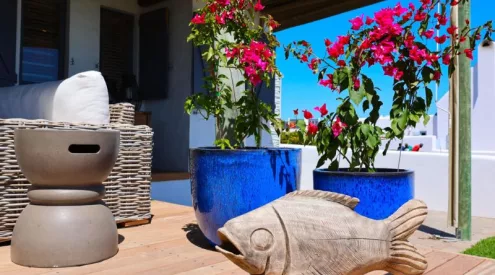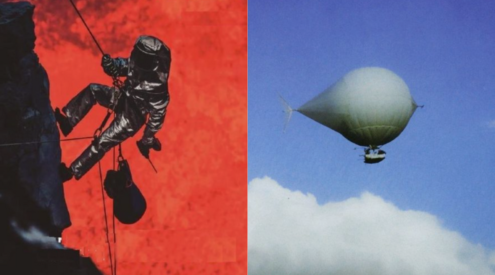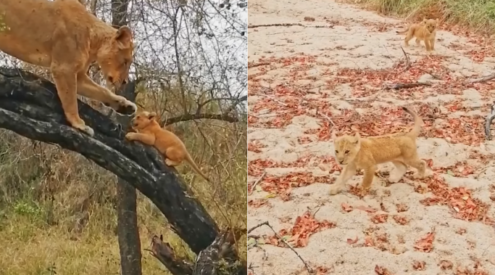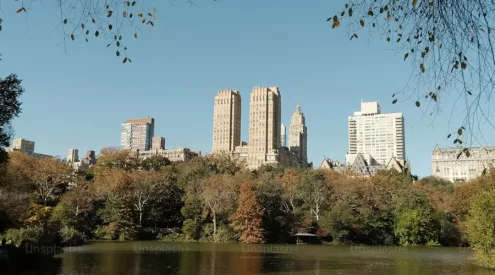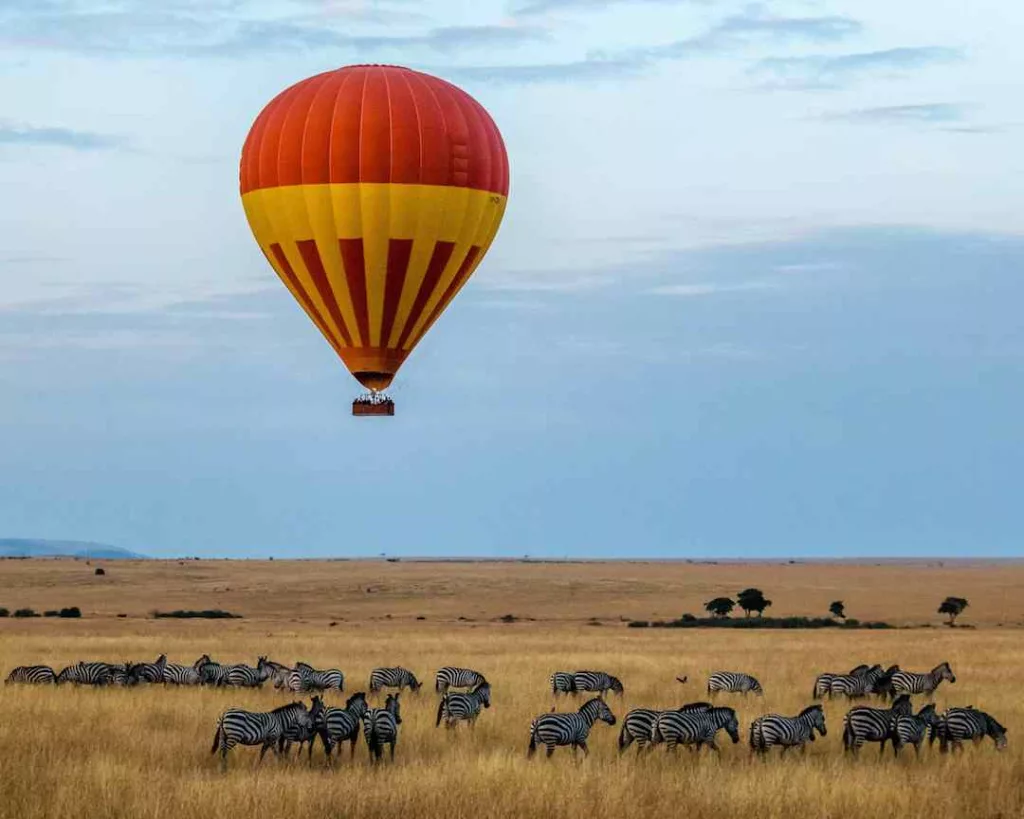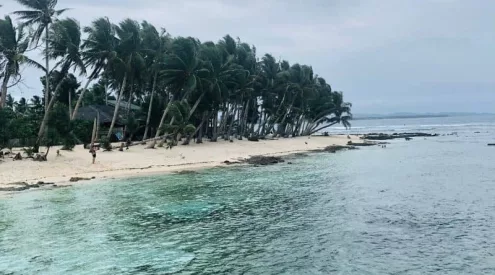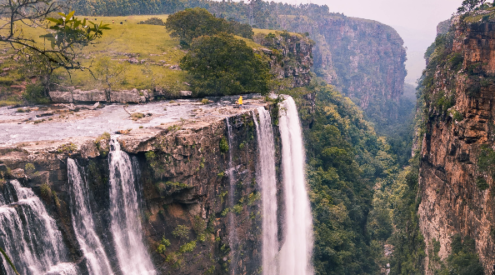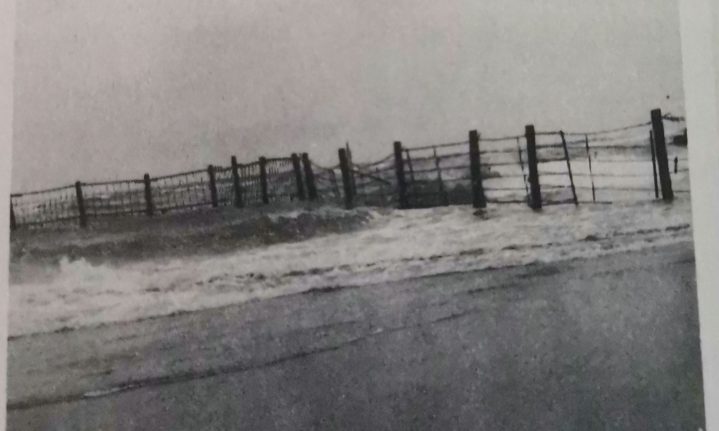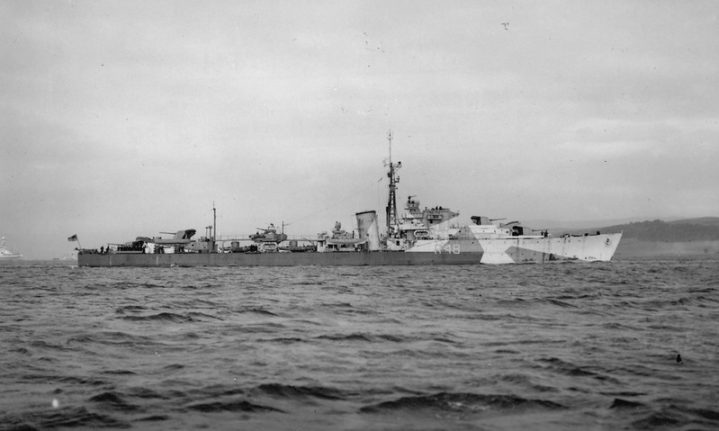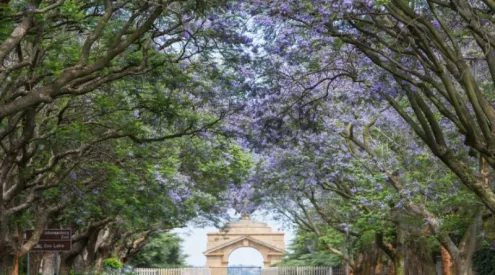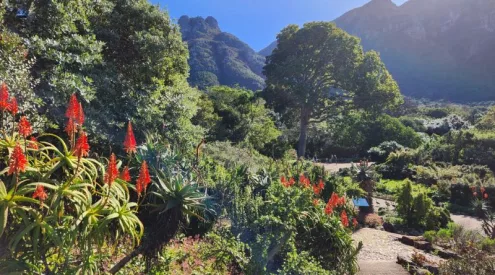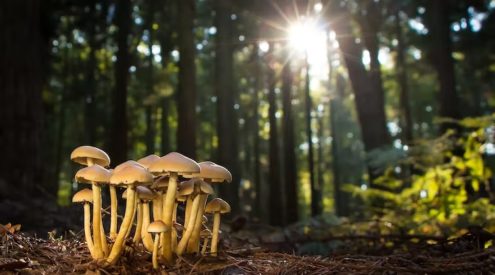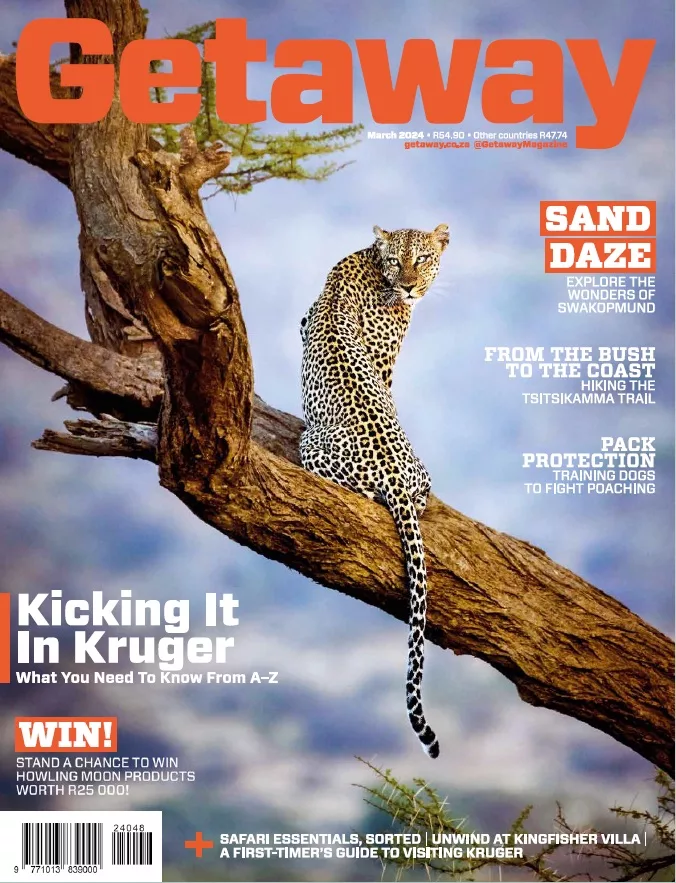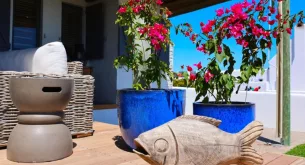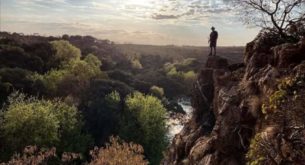In December of 1957, a series of encounters with sharks along the KwaZulu-Natal coast resulted in the death of two bathers in just one week.
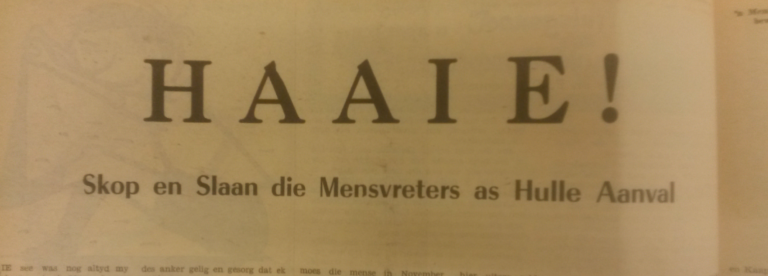
The headline of an article in Die Huisgenoot, 10 January 1958 reading ‘Sharks! Kick and strike the people-eaters if they attack’.
In the 1950s, South Africa had a burgeoning middle class that flocked to the beach during the holidays much like Gautengers today migrate to the country’s coastal towns come December.
Durban and its surrounding beach towns like Margate were a hive of activity back then. Beaches were packed with holidaymakers, along with the proliferation of water-based sports. But back then, Durban had no shark nets. Sharks were not necessarily a consideration, with very few encounters having been recorded before and Jaws would not be released for another 20 years to strike fear into people’s minds.
The events that occurred on the KwaZulu-Natal coast in the holiday season of 1957/8 match the storyline of Jaws, except that it actually happened.
The Black December
The first encounter occurred on 18 December when a boy survived an encounter near Uvongo beach in Margate. Two days later, an encounter resulted in the death of a 14-year-old boy. The Natal Mercury’s report read: “The Giant shark attacked and killed Allan Green…eyewitnesses looked on horrified as they heard Allan screaming and the Sharks tail lashing in the water.”

Uvongo Beach today, which was the location of the first shark encounter of the black December. Picture: Flickr Commons/Pippa Dini
The events were so out of the ordinary, that the expert opinion of an angler was sought out who was reported as saying “The shark might attack again having once tasted human blood.” Three days later, 23-year-old Vernon Berry arrived in Margate for a five-day vacation. He and his friends entered the bathing area, where about 100 others were swimming in waist-deep water.
Apparently, an onlooker from the rocks shouted out “shark”, and this was when his friend turned around to see Vernon pulled underwater. His left forearm was amputated and his lower abdomen, buttocks and right thigh had been bitten away. He died en route to the hospital.
What had been a minor incident five days earlier had deteriorated into panic as holidaymakers cancelled their plans after hearing about the horror lurking beyond the break.
The day after Vernon’s death, a fund was opened in Margate to sponsor anti-shark measures at Uvongo beach as well as a meeting by the Tuna Angling Club to discuss the best way of catching sharks and a light aircraft flew over the coast as a spotter. The effectiveness of this was to be proven a week later, when on 30 December at Margate beach, a visitor from Zimbabwe, Julia Painting was bitten moments after a plane had passed. She survived after six hours of surgery and blood transfusion.
Following these incidents, Margate’s mayor banned bathing and instituted a reward of sixpence a pound for all sharks caught off of Margate. The front cover of the Natal Mercury read “Sharks Beware!- They are after you,” as anglers set out to capture sharks and a helicopter was equipped with a firing platform for the purpose of hunting the animals.
With the new year, came the cavalry. The South African airforce flew into Durban with five cases containing 60 hand grenades, passed onto the Natal command officer. The police were mobilised with rifles and ammunition “ready to deal with sharks.” Extreme measures were taken when on 6 January 1958, the navy’s destroyer, SAS Vrystaat arrived to deliver depth charges along the Natal coast with the hope of killing the sharks, The Mercury reported:
“The SA Navy’s contribution towards the all-out war against the Natal coast sharks menace accounted for at least eight sharks off Margate today – the first of a two-day attack against these man-eating scavengers.”

The SAS Vrystaat was tasked with sending sonic blasts along the Natal coast with the hope of killing sharks. Picture: Tim Webb
Even though the blasts may have killed off eight sharks, the reality was that they also killed hundreds of fish, which attracted more sharks. This was to be a prelude to another incident in Scottsburgh on 9 January, where the victim was declared dead on his arrival at the hospital.
People fled the coast and holidays were cancelled, leaving resorts and hotels empty, crippling the tourist industry. It then became imperative to introduce shark mitigation strategies, and enclosed bathing areas were erected in Port Edward, Margate and Ramsgate.

One of the first Shark barriers erected, Margate, Circa 1958.
Human-shark relationship today
Fortunately, our reactions towards sharks have changed a lot since then. In the years that followed the Black December, the Oceanic Research Institute was established as well as the Natal Sharks Board. These institutions provided a scientific basis from which to understand these encounters and contribute to a consensus of not viewing sharks as rogue killers.
Amongst scientists today, the factors that contributed to the events of the black December were not due to a rogue killer, but the growing popularity of the beach as a holiday spot and recreational activity following the baby boomer generation combined with whaling vessels offshore. Hopefully, there will never be reactionary measures such as the widespread hunting of sharks again.
South Africa was the first country in the world to officially list the great white as a protected species in 1991 and illegal to catch. In Cape Town, Sharkspotters have proven to be a pioneering initiative, showcasing a safe way to use our beaches without affecting marine life.
Even though beach activities have become more popular again over the years, shark encounters have decreased. Although the safe use of beaches is something to be celebrated and testament to the mitigation strategies, great white numbers have been declining and there is a need for their continued conservation.
Places like the Shark Education Centre in Kalk Bay work to ensure that the public remains educated on the importance of these apex predators.

